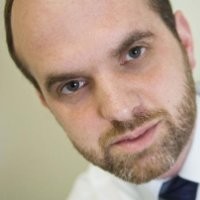Striving for customer service excellence in the digital age
The digital revolution has unleashed many opportunities, so why can't we get customer service right? Mark Samuels takes a look
The basic problem is organisations are struggling to monitor and manage more and more channels.
The simple message seems to be that there is no single type of customer in the digital age. Every customer has different preferences that need to be serviced in a particular way. And meeting this simple requirement across multiple channels is far from straightforward.
Research from Davis Hickman Partners, on behalf of BT and Avaya, suggests the average number of channels used by UK finance customers has increased from 4.3 in 2012 to 6.2 in 2014. Such channels include self-service, web chat and social media.
"Where people spend their time is where CIOs must spend their attention," said Marcus Hickman, director of Davis Hickman Partners, at the launch of the research, suggesting large banks now have as many as 300 experienced professionals to help manage customer touch points.
But managing multiple channels is tough. Many people are still not keen to be serviced online. Just one in four customers wants to use social media to communicate with finance organisations. At the same time, Hickman confirmed the amount of people visiting branches in-person continues to rise.
The simple message seems to be that there is no single type of customer in the digital age. Every customer has different preferences that need to be serviced in a particular way. And meeting this simple requirement across multiple channels is far from straightforward.
Get the ITPro. daily newsletter
Receive our latest news, industry updates, featured resources and more. Sign up today to receive our FREE report on AI cyber crime & security - newly updated for 2024.

Mark Samuels is a freelance writer specializing in business and technology. For the past two decades, he has produced extensive work on subjects such as the adoption of technology by C-suite executives.
At ITPro, Mark has provided long-form content on C-suite strategy, particularly relating to chief information officers (CIOs), as well as digital transformation case studies, and explainers on cloud computing architecture.
Mark has written for publications including Computing, The Guardian, ZDNet, TechRepublic, Times Higher Education, and CIONET.
Before his career in journalism, Mark achieved a BA in geography and MSc in World Space Economy at the University of Birmingham, as well as a PhD in economic geography at the University of Sheffield.




